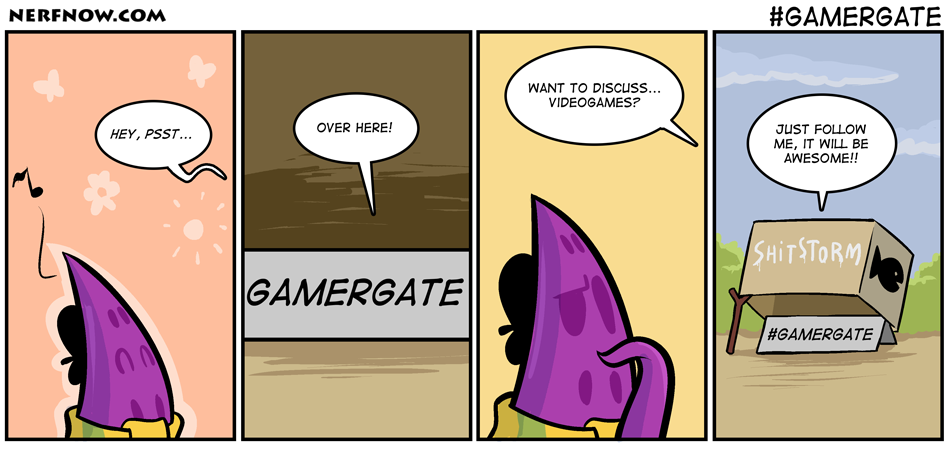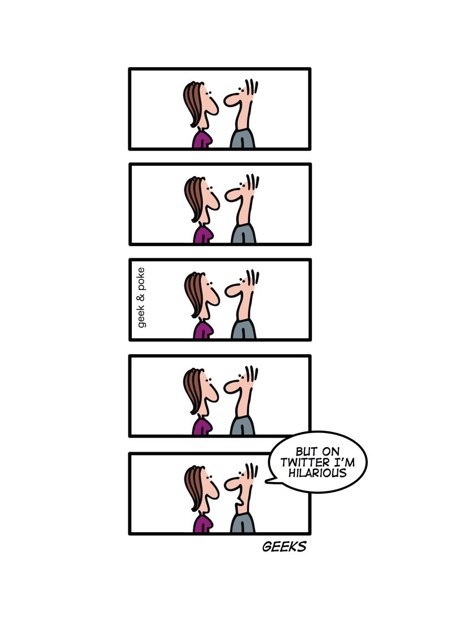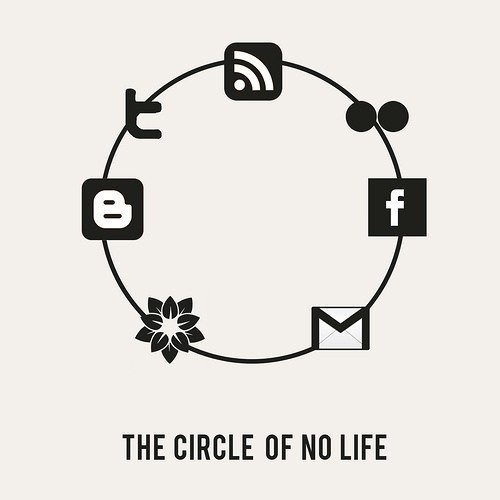Twitter makes it seem like some people are upset about something 24/7. It's no way to live. It's exhausting just to read it.
— BenDavid Grabinski (@bdgrabinski) December 18, 2014
If I remember one thing about 2014, it’s how the internet, and Twitter in particular, kind of sucked.
A little backstory: I’ve been on Twitter since 2009. The microblogging social network helped (or hindered, I’m not sure which is more accurate) me through university, and really started to drive home having the internet — or at least a small microcosm of it — around in my pocket all the time. For the most part, I’ve really enjoyed Twitter. It lets me hear the personal opinions and musings of people I admire and respect, both about topics that interest me and ones that don’t. By following the right people, I’ve had some smart opinions and eye-opening perspectives tweeted into my timeline. Most of my reading material comes from Twitter, and while I don’t watch the news or read a newspaper, Twitter keeps me informed about all the stuff I need to know about.
On a more personal level, I’ve averaged about 5000 tweets per year since I joined. I tweet about pretty boring crap, mostly, because that’s just the kind of person I am — one who’s also aware of his public profile and the fact his tweets may eventually be used against him in some way, and the less fuel for that fire, the better. I’ve typically followed anywhere around 600-800 people, which is enough to keep my timeline busy enough to keep me interested and have something new every time I refresh it and enough to not get completely overwhelmed by a deluge of tweets. I generally don’t care about how many people follow me, although I confess it is a nice ego boost to see a large number of people read my drivel.
Last year, though, was different. According to my app for Twitter statistics, this time last year I followed 842 people, had 889 followers, and tweeted 19,851 times. Compare that with the current numbers (605 following, 938 followers, and 21,187 tweets) and you’ll see that I unfollowed over 300 people and only tweeted over a thousand times, one fifth that of previous years. Interesting.
Chalk it up to the mainstreaming of Twitter or people being unfamiliar with a medium which allowed them to communicate with their social circle instantaneously, every moment of every day, but last year I found out Twitter had disadvantages as much as it had advantages.
At first, I realised it was probably unhealthy to be checking something as frequently as I checked Twitter, but at the same time, I didn’t want to miss anything from my carefully-curated list of people and brands/websites I followed. One re-evaluation of my priorities later, and I started the great unfollowing of 2014, culling around 300 people from my list and eliminating that noise from my life. With a less noisy timeline, I could focus on the people and things that really mattered.
But even that wasn’t enough. I started taking longer and longer breaks from the service. My weeks-long journey overseas made me realise I could do without reading Twitter for extended days at a time, and when I arrived back in the land of mobile internet and Wi-Fi, not having that constant connectivity meant I didn’t check the service as frequently as I used to. It was good, but at the same time, I felt like I was missing out, like I was out of touch with people I cared about.
I returned to Twitter just before the middle of the year. For a while, things were fine: my signal-to-noise ratio was good, and I didn’t feel compelled to read Twitter every waking minute.

Gamergate comic via NerfNow
Then Gamer Gate happened. Overnight, my timeline turned from updates from people I cared about to people retweeting toxic comments into my timeline, leveraging their high follower counts in order to get some kind of public retribution for the offender in question. Suddenly, pretty much every American I followed was obsessed about ethics in game journalism, social justice warriors, and feminism — the latter of which has always been an issue, but a topic I’ve mostly avoided on Twitter thanks to the firefight that usually follows1. Now, though, it was pretty much unavoidable.

